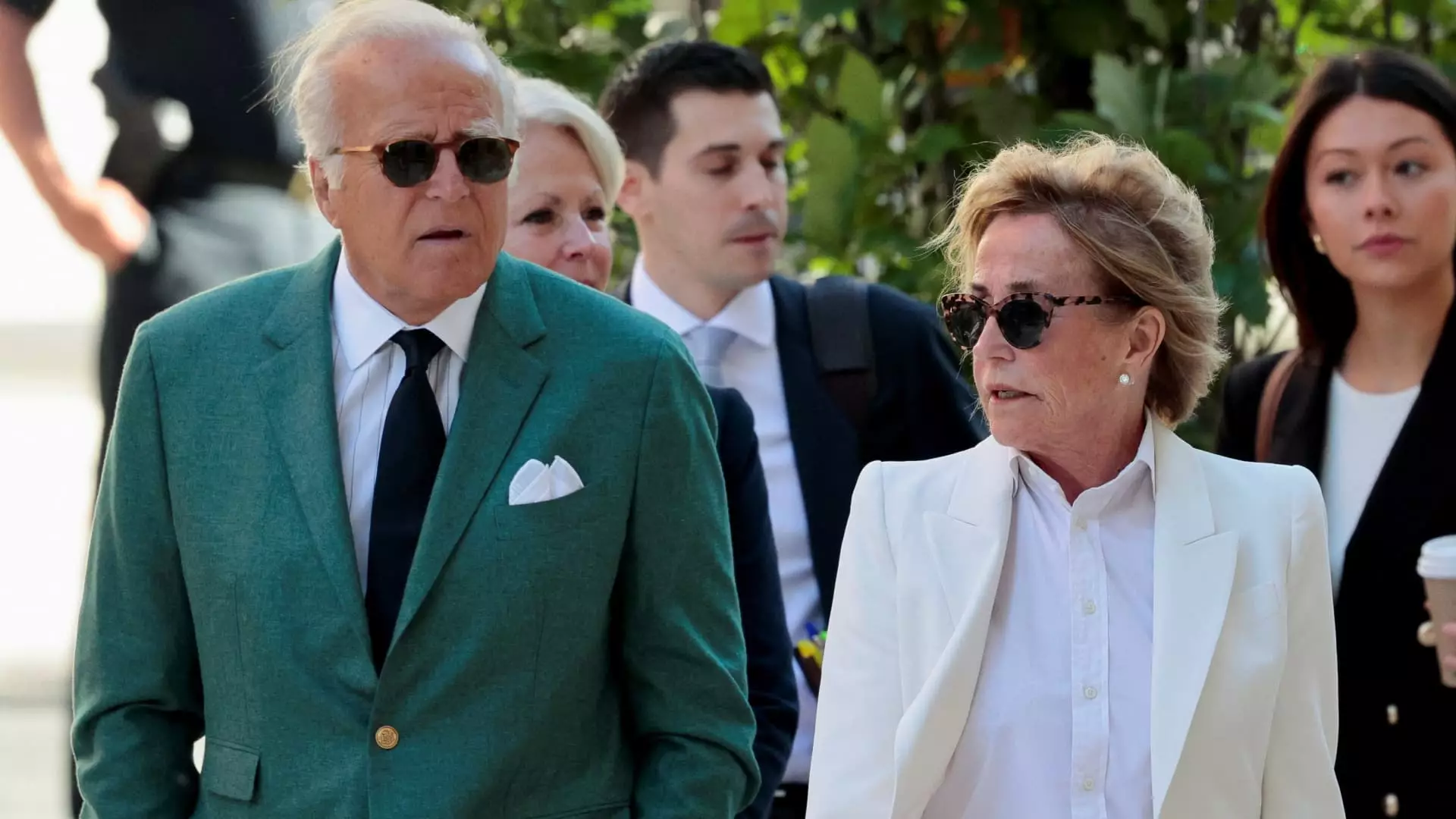The practice of issuing pardons holds a significant place in the realm of U.S. politics, often serving as a focal point of heated discussions. President Joe Biden recently stirred this pot by issuing a series of preemptive pardons for family members and notable figures, defending his actions by framing them as necessary protections against what he described as “baseless and politically motivated investigations.” This particular maneuver raises important questions about the implications for justice, partisanship, and the integrity of the presidential pardon power.
The pardons emanated from the White House just moments before Donald Trump was to be inaugurated as the nation’s 45th president. This timing cannot be overlooked; it almost feels like a calculated move to draw attention to the prevailing threats this administration perceives from partisan investigations. Among the beneficiaries of these pardons were Biden’s siblings—James, Francis, and Valerie Biden Owens—along with their spouses. While pardons are typically reserved for individuals who have committed crimes, Biden’s declaration insists that these actions should not be misconstrued as admissions of guilt.
In tandem, Biden also granted clemency to figures such as Dr. Anthony Fauci and General Mark Milley, recognizing their political vulnerabilities following the divisive rhetoric of the preceding administration. Furthermore, Gerald Lundergan and Ernest Cromartie, both with Democratic ties, received similar favors, thus reinforcing the theme of protection against politically motivated inquiries.
Biden has articulated a vision of political assaults that characterize contemporary governance. He emphasized that his family, as well as other public figures, have been subjected to unrelenting attacks meant to diminish his presidency. “The worst kind of partisan politics” is how Biden described the motivations behind these attacks. He points to a troubling trend where allegations and investigations have become tools for oppression rather than mechanisms for justice.
This raises an alarming dilemma: if pardons are issued preemptively, what message does that send regarding accountability and the presumption of innocence? Biden’s approach suggests a blurring of lines between legal integrity and political strategy, fostering an environment where individuals may feel compelled to seek protection before actions are even deemed criminal.
The Broader Implications for Justice and Accountability
There is a palpable irony in the entitlement of a president to issue pardons for those he claims are innocent of wrongdoing. While it is true that investigations can deeply affect reputations and livelihoods—even for those who are exonerated—the implication is that individuals should be shielded from the very processes designed to uphold law and order.
President Biden’s statements introduce an intricate layer to this debate. He passionately argues for the rule of law while simultaneously exercising his prerogative to pardon, seemingly in response to a crisis of confidence in legal institutions—an unnerving indication of how deeply intertwined politics and justice have become.
When examining the precedent set by these actions, one must consider whether this invites future leaders to act similarly when faced with scrutiny. If preemptive pardons become commonplace, it risks normalizing the notion that political figures can evade accountability simply through the assertion of victimhood, thereby potentially undermining public trust in the legal system.
President Biden’s issuance of preemptive pardons illustrates a significant moment in American politics—where the tips of justice and partisanship intersect. While the aim of protecting his family and associates from what he perceives to be politically motivated attacks is understandable, the long-term ramifications for justice and accountability are monumental. A balance must be struck between safeguarding individuals from unfounded investigations and upholding the principles of fairness and accountability that are pivotal for a functional democracy. As we navigate this contentious arena, the importance of scrutiny, both of political motivations and the exercise of presidential powers, becomes more crucial than ever.

